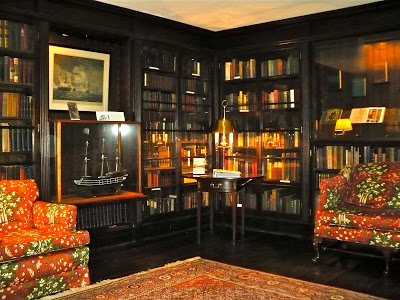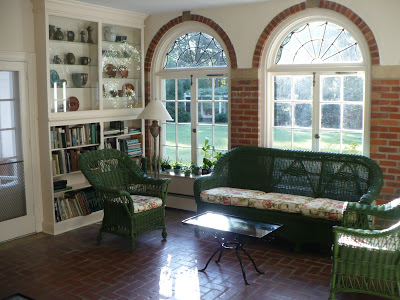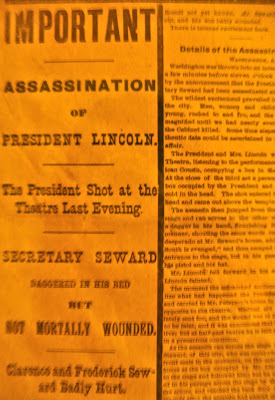Weymouth Center: Doing My Job
I’ve often been asked if I ever feel self-indulgent with “all this time to just write.” It’s an innocent enough question, but my response is pretty clear: If a lawyer wakes up in the morning, eats her breakfast, and goes to the office all day—does anyone ask her if she feels indulgent because she did her job? No. Likewise, artists who wake up and go to work each day—be it at a cluttered desk, a Southern mansion, a small office, or a private studio—are simply doing their jobs. To do anything less with the passion and talents we’ve honed and been given would be the real crime of indulgence.
And so it is that I proceed into my second week at Weymouth. The task? Revising my second fiction manuscript, submitting more war stories, and writing a cover letter to the publisher. No matter how my days unfold here, I’ve found a room for every mood. More often than not, these moods go hand-in-hand with various stages of the writing process.
THE STEEPING
This is how I think of it: Reading great works by other authors is part of my job. I like to let the slow, steady wisdom of another fiction writer steep into my subconscious at a constant trickle. That’s why, when I can, I start every day by reading a few good stories over a cup of coffee. Here at Weymouth, I go to the James Boyd Library for the steeping. It’s a small, dark room so utterly bookish that just sitting in there feels like living on a well-loved, glass-encased shelf of books. So far in 2010, I’ve read 36 books…and counting.
[The James Boyd Library, my favorite room so far.]
THE FLOWING
If my body is stuck, my mind is stuck. If grad school taught me anything about process, it taught me that. Incidentally, I dropped 30 pounds and gained a bit of muscle during my tenure at Pacific University and—gratefully—the habit has continued. Movement can be running, yoga, karate, or even just a 20-minute burst of pushups and situps. Either way, if I can get my blood and breath moving enough to “get out of my head” for a little bit, when I return to the desk I’m as fresh as ever. At Weymouth, The Gardener’s Room makes for a great yoga room before the day heats up too much.
[The Gardener’s Room]
THE RESEARCH
For whatever reason, my fiction always leads me to learning new things. When I began writing the war stories, I needed almost constant access to high speed Internet in order to effectively and efficiently do my work. For example, I had a character looking out her apartment window in Tarin Kowt, Afghanistan in August. What season is August in Afghanistan? Is Tarin Kowt near mountains or in the desert? Are there second-story apartment buildings in that city anyway? Thanks to the wonders of Google Maps, Google Earth, Wikipedia, and other sources, these basics facts don’t take long to look up. When I’m flowing with a new story and I need to check a fact or look up a detail, I want it right away. After 25 war stories, I’ve finally developed a knowledge base and list of book and web references that make this process even smoother. Here at Weymouth, this happens in the NC Literary Hall of fame (photo posted last week).
THE REVISION
The Saint Andrews Room, with its regal antique conference table running lengthwise for more than twelve feet, has become my room of choice for revision (see photo in last week’s post). Here, I can spread out my work. Since all of my work is stored on my computer, which never changes size no matter how much I “fill” it, seeing my work on paper and spread out this way actually gives me a sense for the breadth of what I am doing. It’s a rare opportunity for, and I like it. Likewise, as I revise each piece and recycle the previous draft, I can see a space where the old version used to be—proof of a task completed (photo posted last week).
The list goes on and on. The F. Scott Fitzgerald room is my phone/business room, where I place calls (cell reception) while lounging in a high-backed antique chair. If I’m put on hold, I can always read the framed, original front page of THE NEW YORK HERALD dated April 15, 1865 announcing the assassination of President Lincoln.
[Partial view of THE NEW YORK HERALD’s 1865 announcement of President Abraham Lincoln’s assassination. Weymouth is full of treasures like this!]
Comments





About steeping: Do you ever worry about the point to which reading can inform and influence your writing? A writer's voice is such a unique, yet delicate thing; it is something I consider. I very much find myself thinking, therefore writing in a similar style/fashion/mood to whatever I am reading. There are so many influences, I wonder what your thoughts are.